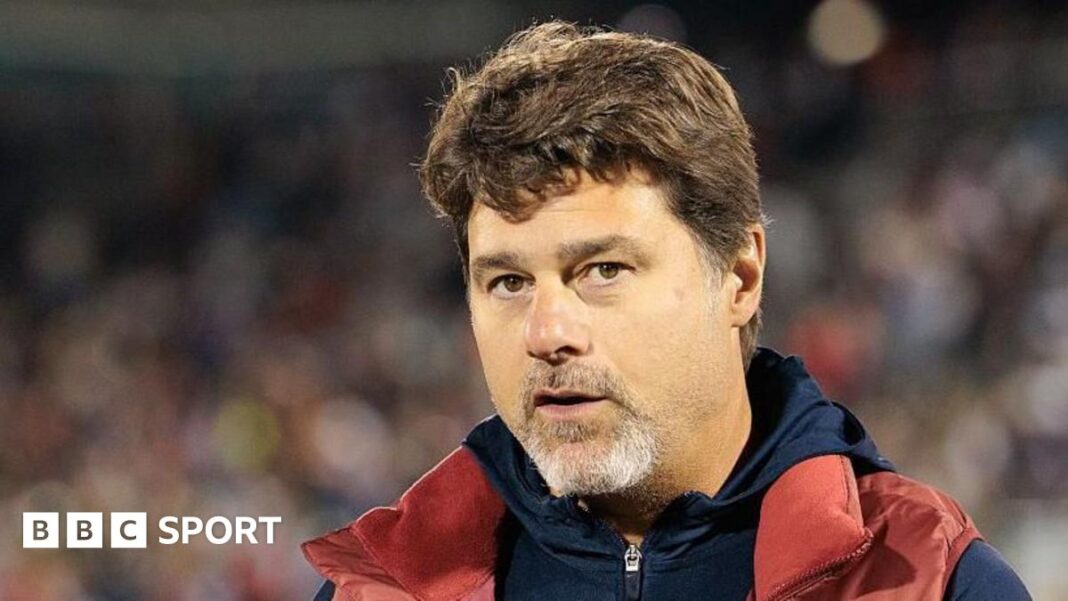Pochettino’s Challenge: Leading the U.S. Soccer Team into the 2026 World Cup
In September 2024, Mauricio Pochettino took on the formidable task of steering the United States men’s soccer team as they prepare to co-host the 2026 World Cup alongside Canada and Mexico. This monumental opportunity is both an exhilarating prospect and a considerable challenge, given the country’s historical struggles in international soccer.
Mixed Results in the Early Days
Since taking the reins, Pochettino has secured 11 wins out of 20 matches—an encouraging start but not without criticism. The team has suffered defeats against regional rivals such as Mexico and Canada, as well as against other nations like Turkey, Switzerland, and South Korea. These results have stirred a wave of scrutiny among fans and analysts alike, questioning whether Pochettino is the right man for the job.
Cultural Shifts and Mindset Challenges
One of the crucial aspects of Pochettino’s management is the task of changing the culture and mindset within the team. Many players are accustomed to a certain style of play and national identity, which may not align with Pochettino’s vision. Reports indicate that he has faced significant challenges in merging these differing perspectives, leading to an atmosphere of critique around his leadership.
Moreover, Pochettino has expressed discontent regarding the support—or lack thereof—for the U.S. team during matches. It has been particularly disheartening for him to see visiting supporters significantly outnumbering American fans at home matches, highlighting a need for greater domestic enthusiasm for soccer.
Adjusting to International Management
Transitioning from club football to managing a national team brings distinct challenges, and Pochettino has candidly acknowledged this adjustment period. The rhythm of international fixtures is vastly different; he describes the pace as “intense,” where days are spent preparing for one match before quickly pivoting to the next.
“The intensity is completely different,” he explains, reflecting on how the limited interaction time he has with players can lead to feelings of emptiness. Once a game concludes, the opportunity to communicate and refine strategies disappears until the next international window arrives, which can be several months later.
Historical Context and Future Aspirations
Historically, the U.S. men’s soccer team has only reached the World Cup quarter-finals once—in 2002. The hope is that with the upcoming World Cup in North America, the nation can leverage its hosting role to inspire a new generation. The Major League Soccer (MLS), formed in 1995, has seen significant growth since hosting the World Cup in 1994, exemplified by the arrival of global superstar Lionel Messi in 2023. This influx of talent is changing the landscape of soccer in the U.S.
Pochettino is optimistic about this evolution. He believes that players like Messi not only elevate the game but also inspire children who might have otherwise gravitated toward basketball, American football, or baseball. He points out that the excitement around soccer is palpable, and the potential for growth is enormous.
Embracing the U.S. Soccer Culture
Interestingly, Pochettino has had to adapt to the local vernacular too—he’s instructed to refer to the game as “soccer” rather than “football” to avoid confusion among the American public. He stresses the importance of not losing sight of the essence of the game, despite the term.
“I think players like Messi are helping the kids,” he asserts, emphasizing the broader cultural implications of soccer’s growth in the U.S. Pochettino firmly believes that understanding the culture of soccer transcends national boundaries, arguing that effective coaching should focus on the universal language of the game itself.
Building Towards the Future
Pochettino is determined to lay the groundwork for a more competitive U.S. team at the World Cup. He believes that building a unified understanding of soccer principles within the team is key to unlocking their potential. As he continues his journey, the emphasis remains on instilling a competitive spirit, encouraging a mentality fixated on victory and performance.
His insights into coaching reflect a broader ambition for American soccer: to translate the global culture of football into a language that resonates with American players. Pochettino’s conviction in this regard signals not just hope for the U.S. men’s team but a vision for soccer’s promising future in America.



